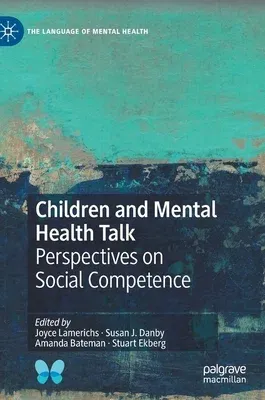Children and Mental Health Talk: Perspectives on Social Competence (2019)Hardcover - 2019, 29 December 2019

Qty
1
Turbo
Ships in 2 - 3 days
In Stock
Free Delivery
Cash on Delivery
15 Days
Free Returns
Secure Checkout

Part of Series
Language of Mental Health
Print Length
216 pages
Language
English
Publisher
Palgrave MacMillan
Date Published
29 Dec 2019
ISBN-10
3030284255
ISBN-13
9783030284251
Description
Product Details
Book Edition:
2019
Book Format:
Hardcover
Country of Origin:
NL
Date Published:
29 December 2019
Dimensions:
21.01 x
14.81 x
1.6 cm
ISBN-10:
3030284255
ISBN-13:
9783030284251
Language:
English
Location:
Cham
Pages:
216
Publisher:
Series:
Weight:
444.52 gm